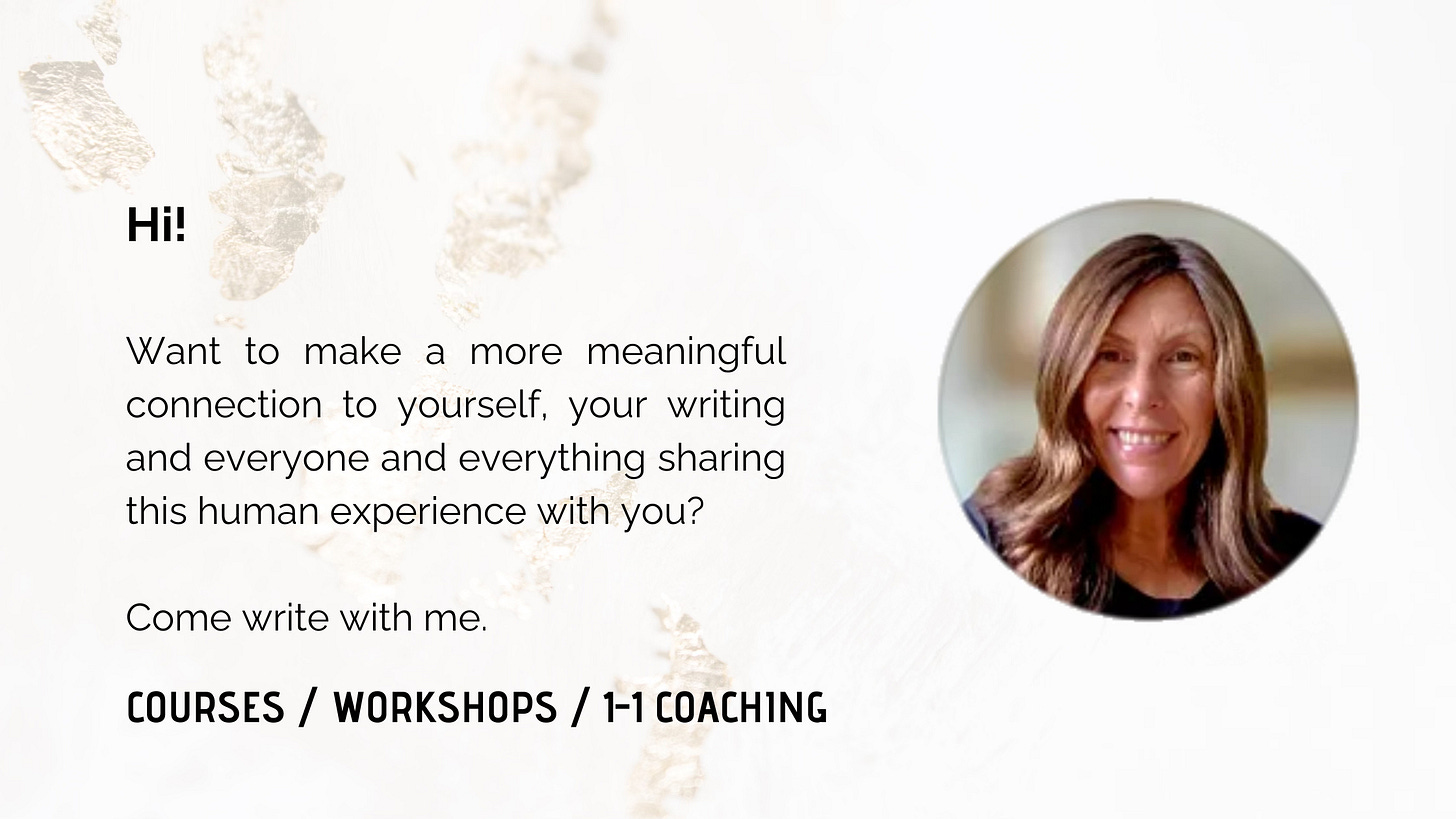Thank you for reading The Mindful Writer, which is all about making a difference to our lives, and the lives of others, by living and writing mindfully. All of my posts are free to read but if you’d like to join our community, paid subscribers get a Mindful Writing ebook and monthly Mindful Writing Marathons.
“Happiness is when what you think, what you say, and what you do are in harmony.”
- Mahatma Gandhi
Whenever people ask us how we are, most of the time most of us default to saying we’re fine whether that’s really the case or not.
In my hometown of Reading, UK, a standard greeting when you see someone you know is ‘Alright?’ and I have been thinking about this a lot lately. It’s a kind way of saying hello and shows interest in a person’s wellbeing. But nobody really treats it that way. Most people just say it back and carry on walking but even if you’re having a stop and chat, it never really gets answered then either. Most of us seem unable to say how we’re really feeling. And I think a lot of the time it’s because we don’t really know.
We’re busy doing all the things we have to do. Busy thinking about all the things we were supposed to have done but haven’t had time to do, the things we want to do but never get round to, the conversations we’ve had or need to have, the people who hurt us in the past, the bills that keep rising, the news we’re bombarded with. So many distractions that stop us from stopping and finding out what’s really going on with us.
As writers, whether of fiction, memoir or personal essays, if we want our work to be real, to connect with readers and make them feel something, to matter to us as we write, I think it’s really important to stop and think about how we really feel. In general on a day-to-day basis, but especially when the ‘big’ things happen in life, and for the topics we’re writing about.
In my family, I was known as the over-emotional one. I would cry a lot. At films and books, when the cat didn’t come home, if I dropped something and it broke, it never took much to set me off. It made my parents very angry. I was told to stop crying or they’d really give me something to cry for. So I learned to suppress my feelings. Hide them, push them away, pretend they weren't happening.
By the time I left home at eighteen I no longer knew how to connect to my feelings properly. Or to express them. I tried to pretend I didn’t have any. I created a facade of being a tough girl bothered by nothing and no-one. I went out and partied all the time, got stoned every day and night, and hardly ever spent time on my own. But when I did, in secret I would still cry at books and films. Whenever something happened that created strong emotions in me, it was like all the feelings I’d been suppressing for all the years would burst out at once and I would have huge reactions. Then be embarrassed, even if nobody witnessed it, and work hard to reestablish my tough girl facade. I think the only person who was ever fooled by it was me.
But then I met my husband and he smashed straight through those barriers with love and fun and more developed emotional intelligence than me. He helped me to see that rather than bottling everything up until it exploded out of me, I should stop and let the feelings flow when they came. It didn’t happen overnight, far from it, but over the years I got better and better at letting myself feel what I was feeling.
But I still hadn't faced the buried memories and trauma from my upbringing so the progress was always halted. I’d lapse back into old unhealthy ways and distract myself from feeling properly. And it was only when I set those memories free and developed a mindful and spiritual life that what I think and say and do started to be more aligned.
Now, when I notice that I’m not feeling my usual chipper self, instead of just carrying on and pretending it’s not happening, I sit and look at it. Figure out where it’s coming from and what it’s all about. It doesn’t make it go away, but it makes me better able to deal with it by really feeling it.
And that makes me better able to write stories and personal essays and courses that come from my heart, which means they are more likely to touch others hearts. And that is one of the best feelings of all.
How are you feeling? Let me know in the comments.
With love,








Your standard greeting is a shortened version of a greeting that my wife and I were just talking about yesterday: “How you doing, all right?” The asker is basically answering the question for you because they don’t really want to hear otherwise.
Wouldn’t it be nice if we used words with more intention and awareness? Then, instead of asking questions that we really don’t want answers to, we could, say, offer a blessing. “I wish you well today.” That’s pretty easy. And then, even if the person is doing badly, they’ve just had someone express the hope that their day gets better!
I’ve accustomed myself to pause and answer accordingly. Today, In my yoga class, I asked each person to connect with how they are really feeling. This is an awareness practice. We often respond from a place of caution, hiding our emotions to avoid judgment or unnecessary conversation.
Therefore, today, I’m feeling physically
tired.